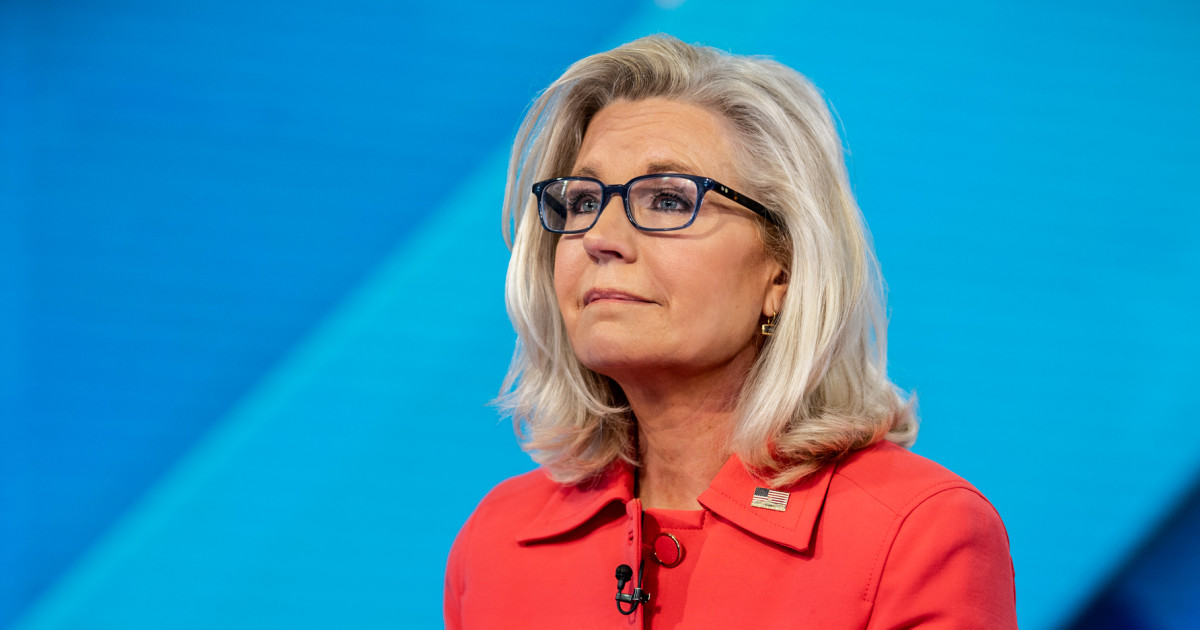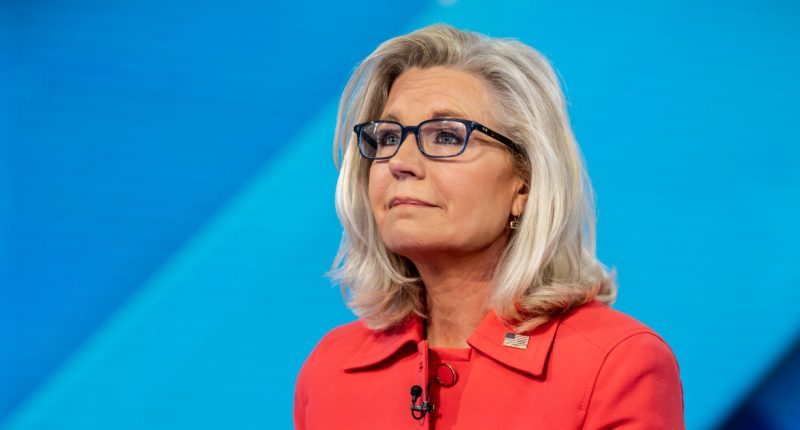
It’s the last week before the official start of the 2024 primary season — and if you’re wondering what happened to the debate about the future of the Republican Party, you aren’t alone.
As Iowa prepares to vote, the final ad campaigns appear to be focused more on Nikki Haley than on Donald Trump. Both Trump and Ron DeSantis have Haley attack ads up this week. The move is tactically understandable: She’s the candidate on the rise, who most likely has the highest personal ratings among those GOP voters still undecided. So taking her down a notch makes sense for Trump and DeSantis.
But from a historical perspective, this lack of focus on Trump — and the future of the party and the nation that Trump promises — is head-scratching. In 50 years, when historians look back at this campaign, they will no doubt examine it through the prism of whether the GOP wanted Trump or a new direction. But that’s not the campaign that’s actually taking place.
There isn’t much of a debate about the direction of the GOP. While I have no doubt that both Haley and DeSantis believe the GOP under Trump is headed in a terrible direction, neither appears to have the guts to say that.
Instead, the hardest hits on Trump from either of his chief challengers are that he has “his issues” (a DeSantis staple, as part of his riff that Trump is running for “his issues,” Haley is running for her “donor issues,” and DeSantis is running on the “voters’ issues”). It’s some seriously weak tea when it comes for making a case against Trump.
Haley is barely any better in her attacks on Trump. She begins with an endorsement of Trump and Trumpism before making a case for her own candidacy. She almost apologizes to voters for even attacking him by claiming Trump was the right president for the time he was elected in 2016. But then she pivots to argue the chaos that Trump would now bring to the presidency is a bridge too far. I guess she believes the chaos he brought to the presidency was good chaos — but a second term will be bad chaos?
What’s plainly obvious is that neither the former U.N. ambassador nor the Florida governor has the guts to say Trump’s first term and his leadership were failures. DeSantis has nibbled around the edges of this argument by noting his own success leading the Florida GOP compared to the disastrous electoral record Trump racked up as leader of the national GOP. But even that hit by DeSantis is, at best, a bank-shot attack.
Of course, any Trump opponent inside the GOP has to contend with the misinformation ecosystem Trump and his cronies have so successfully built. The reality of Trump’s term has been memory-holed fairly effectively among the GOP electorate.
And I’m aware of the argument strategists inside both campaigns make about why they pull their Trump punches, the biggest reason being: How can they convince the GOP electorate Trump is a serial liar and a threat to democracy if a majority of the GOP electorate believes differently?
I get it. It’s not easy. But being a truth teller isn’t easy, apparently, in our current politics — or else more politicians would see an upside to being truth tellers.
Sadly, it takes political humiliation before many politicians will speak truth to power (see Christie, Chris). I imagine both Haley and DeSantis will have even more to say about Trump and Trumpism after they lose this campaign to him. That is, if they determine that they have no futures in a Trump-led GOP. One gets the sense that both of them hold the delusion that, somehow, they can navigate this moment and get back into the Trump camp enough to be positioned as an heir-apparent in 2028.
All that means what we haven’t gotten from this campaign is an effective campaign to reform and change the GOP from within. To be fair, former Arkansas Gov. Asa Hutchinson, who is still actively running, is the only candidate who has fused an anti-Trump character message with an anti-Trumpism message attempting to remind Republicans what the definition of conservatism was for true Reagan acolytes. Now, his message has fallen completely flat. But when the historians get their hands on this election in 50 years, they will find one example of a Republican fighting for a different conservative construct.
Unlike the Goldwater hijacking of the party in 1964, there isn’t a robust debate in this campaign about the direction of the GOP. There probably isn’t going to be anything close to a “time for choosing” moment at the Milwaukee convention this summer.
Inside or outside?
And that brings me to the question of whether this lack of debate about what the GOP should be in the future is a sign that the party is irredeemable to frustrated conservatives who could stop trying to work from the inside and instead start a new party.
It’s a question former Rep. Liz Cheney of Wyoming has been openly pondering, though it seems she has decided to focus all of her efforts on defeating Trump before turning to the challenge of remaking or replacing the GOP. Here’s what she said recently to NPR about the question of the future of the GOP.
“I think that there are two things that have to happen: One is, in the near term, the defeat of Donald Trump,” Cheney said. “The second thing is either building a new party or bringing the Republican Party back from the abyss of this cult of personality that has engulfed it. But that second thing — of whether or not it’s building a new conservative party or rebuilding the Republican Party — that is going to take time. That’s not something that can happen before the 2024 election. And frankly, I worry that if we focus too much on that, we will take our eye off the ball of the defeat of Donald Trump in ’24. So I do think both of those things have to happen. But I think it’s a matter of sequencing and what has to happen in this cycle versus what can happen after that.”
I get her pragmatism and understand her rationale. But I wonder whether this is a time to attempt to walk and chew gum at the same time. There’s no doubt that the single most credible person on this issue of the future of the GOP is Cheney. She went after Trump from a position of strength inside the party, not weakness — unlike Christie, for instance. She could easily have prioritized her own political future but didn’t. She put her safe House seat on the line to stand up to Trump.
She doesn’t appear to be focused solely on getting to the presidency, and that alone might give her more credibility to be the spokesperson for the future conservative movement, one grounded in truth. And there are quite a few voters who would be more comfortable voting Republican who simply can’t stand Trump. Cheney has to find a way to connect and lead this part of the electorate if she hopes to accomplish her near-term goal of denying Trump the keys to the presidency.
Simply advocating a vote for President Joe Biden might not be an effective message — at first — to persuade the Trump-skeptical to hold their noses and vote for the incumbent. So there are a few questions for Cheney and other advocates for a new GOP to ponder when it comes to not just denying Trump the presidency but also remaking the conservative movement into something that isn’t a cult of personality.
To get the GOP electorate to dump Trump, does the party need to experience losing more deeply? For instance, in Michigan, former Rep. Mike Rogers, the national GOP’s leading candidate for that open Senate seat, has decided he’s endorsing Trump for president. This after he had been quite the vocal critic of Trump, at least during his brief time as a national security analyst for CNN.
I single Rogers out because for anyone who has spent time covering him, it’s hard to view him as some MAGA wannabe. But clearly, the imperative to get elected can change a person’s tune when it comes to Trump, at least inside the GOP. Again, one understands the rationale: “Just because I’m saying I’ll support Trump doesn’t mean I’ll do his bidding while in the Senate,” he might say. “This is just what one has to do in the world of politics.”
Rogers is running in a Senate primary that includes GOP former Rep. Peter Meijer, who lost his 2022 House primary for re-election because he voted to impeach Trump. So in this instance, voters who want a different direction from Trump do have a choice in the primary, though Meijer has since said he’d support Trump if he’s the Republican presidential nominee in 2024. But what does Cheney do in this instance? Does she recruit candidates to run in GOP primaries who are anti-Trump? Does she support conservative third-party alternatives to punish Republicans who decide to go down the Trump road?
What’s the most effective way to go about stopping Trump and advocating for a conservative movement that is free from him? Is it easier to get conservatives who don’t like Trump to vote for Biden if they know something new on the right is being built? That their vote against Trump will mean something more than simply getting Biden re-elected?
How Cheney uses her considerable influence to challenge Trump the individual and Trumpism the idea will be a huge factor in whether Biden gets a second term. She’s the best advocate on the right against Trump, but she can’t become former Ohio Gov. John Kasich and go from being a Republican in good standing to a speaker at the Democratic convention. The more she looks like a Democratic surrogate, the less influential she would be with the very voters she wants to rally to stop Trump.
By the fall, Cheney still has to seen as a believable advocate for a new conservative movement rooted in the traditions of American democracy if she wants to convince these voters that a vote for Biden is a vote for a chance to remake the right without Donald Trump.
It’s not an easy assignment, but she seems as prepared for the task as anyone actually running for president at the moment. And if you care about a healthy American democracy, you should care about the development of a healthy conservative movement just as much as you may care about a healthy liberal or progressive movement.
Biden in Charleston
When the year started, the Biden campaign signaled it was going to begin the year with a clearer focus on the threat of Trump. How did it do that? By setting up speeches in Valley Forge, Pennsylvania, marking the third anniversary of the Trump-inspired attack on the Capitol and in Charleston, South Carolina, at Mother Emanuel AME Church, where a gunman driven by white supremacist ideology once killed African American congregants.
While the Valley Forge speech was as clear a clarion call as one could have on the Trump-democracy issue, the Charleston speech didn’t hit the same way. If the focus was to be Trump, then why wasn’t this speech in Charlottesville, Virginia, where a white supremacist rally to save a Confederate statue turned deadly and where chants of “Jews will not replace us” rang in the nation’s ears? This isn’t an attempt to play down the message Biden delivered in Charleston, but if the focus of the re-election is about Trump — and the campaign wants to make a direct case that his leadership is giving aid and comfort to this hateful ideology — then Charlottesville is a better setting than Charleston, where the white supremacist attack took place before Trump was president.
Obviously, finding a way to do a “first campaign event” in the Democratic Party’s new first-in-the-nation primary state — South Carolina — was a strong pull for Team Biden. But I think the tradeoff for a better short-term political setting wasn’t worth diluting the focus on Trump.
There were plenty of good actors on the GOP side after the Charleston shooting, including Haley, and if Biden’s goal is to woo Republicans who are embarrassed and fearful of Trump, he has to make sure his messaging is focused on that, not on trying to lump every Republican into the same camp. It’s a subtle thing but one worth being concerned about if the ultimate goal is to deny Trump the presidency.
Biden’s greatest challenge
Trump is up with a new contrast ad with Biden about the economy. And it’s a reminder of the challenge Biden faces when it comes to economic messaging. Nuance and context get lost in a hurry when you compare the Biden and Trump economic records. Here’s the ad:
“Everywhere you look, Trump beats Biden on the economy. Take-home pay: up six grand under Trump; under Biden down $7,000. Mortgage rates: low under Trump; punishing under Biden. Personal and retirement investments: up 40% under Trump. Under Biden, your investments fell along with other things. Trump: He’ll make America’s economy great again.”
The message in this ad is what Biden should be worried about. Biden has a good story to tell on the economy, just not one that works in a 30-second ad. Trump has the better elevator pitch, as do most snake-oil salesmen — but that doesn’t mean it won’t be effective.
Biden needs the public’s perception of a healing economy to continue to take hold. Slowly but surely, consumer confidence is rebounding and perceptions of the economy are getting better. But in the meantime, Biden has to dilute the impact of this economic messaging and then hammer home the democracy message. And he can’t fall into the trap of allowing Trump to define the terms of the debate.
The more Biden tries to respond on the border and the economy, the more he could fall into that trap. If Trump can make this an economy/border election, he’ll win. The challenge for Biden is to avoid looking tone-deaf on those issues without getting bogged down in a debate with Trump, instead always getting the conversation back to the threat Trump poses to the republic. Easier said than done!
Source: | This article originally belongs to Nbcnews.com









